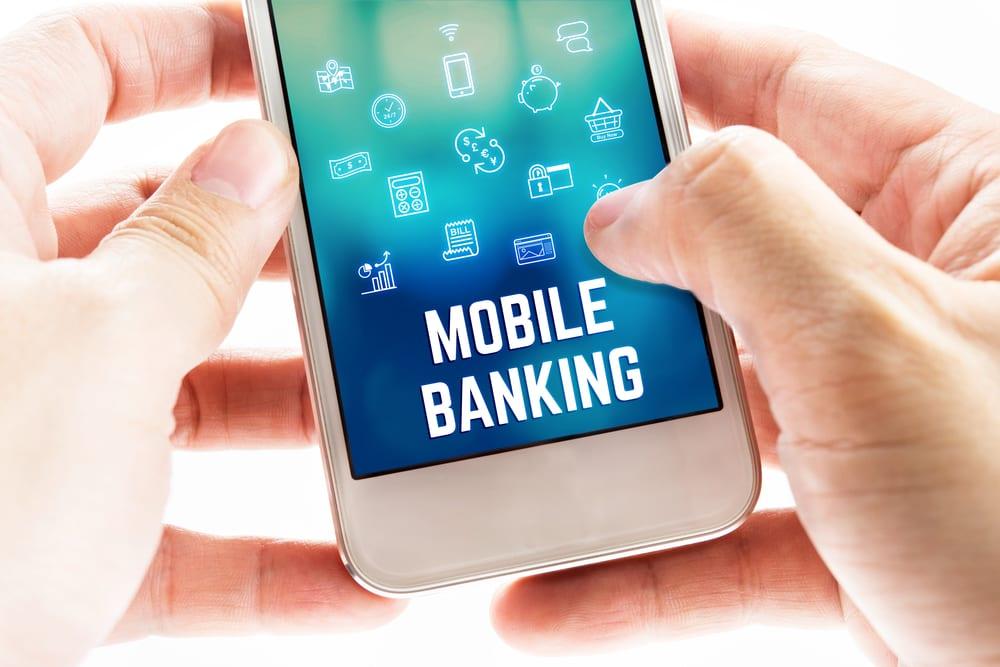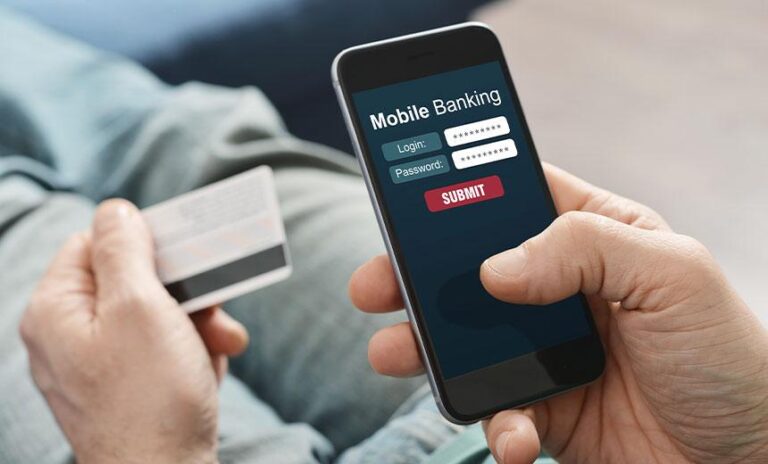In a world where your smartphone is practically an extension of your hand, mobile banking has become as essential as your morning coffee. Picture this: you’re lounging on your couch in your PJs, sipping on your third cup of coffee, and paying bills with a few taps—no lines, no waiting, just pure digital zen. But, before you dive into the glorious convenience of transferring funds and checking balances from the comfort of your bed, let’s chat about how to do it safely and effectively. After all, you wouldn’t want some cyber scoundrel dipping into your hard-earned cash or messing with your mobile transactions. So, grab that coffee (or tea, we don’t judge), settle in, and let’s navigate the wonderfully secure world of mobile banking together!
Mastering the Art of Not Losing Your Savings from Your Sofa
It’s crazy how comfy we can get with technology these days. One minute you’re swiping through memes in your pajamas, the next you’re managing your entire financial empire. But hey, not everyone is an app-whisperer! Let’s break down a few core tactics to keep your savings safe without ever leaving your sweet, sweet sofa. First off, use those app notifications like a pro. Enable transaction alerts, set spending limits, and yes, embrace the glorious habit of two-factor authentication. Nothing says “Stay out, hackers” like a couple of random digits only you know.
- Enable transaction alerts
- Set spending limits
- Use two-factor authentication
Avoiding sketchy public Wi-Fi for your bank transactions is probably the wisest thing since downloading cat videos. Ever wondered why they’re free? It’s an invitation for cyber mischief. For added layers of security, consider a VPN or check if your bank offers its own security tools. While you’re at it, get a good password manager too. Because let’s face it, ‘Password123’ isn’t going to cut it anymore!
| Do | Don’t |
|---|---|
| Use a VPN | Trust public Wi-Fi |
| Enable Two-Factor Authentication | Use weak passwords |

Password Prowess: Beefing Up Your Digital Fort Knox
Let’s face it, keeping track of multiple passwords can feel like juggling flaming torches—exciting but a bit dicey. One way to avoid turning your digital security into an impromptu circus act is by using a password manager. It’s like hiring a personal security guard for your online accounts. With a password manager, you only need to remember one strong password while it securely handles the rest. Some even generate ultra-strong passwords that are practically hacker-proof.
But wait, there’s more! Make sure you never reuse passwords. Sure, it’s tempting to recycle that trusty password you’ve had since high school, but doing so is like leaving your front door wide open. Also, consider enabling two-factor authentication (2FA) whenever possible. It’s like adding a deadbolt to your digital front door. And always be cautious with security questions; choose answers that are not easily guessable by a quick social media stalk.
| Tip | Explanation |
|---|---|
| Password Manager | Keeps all your passwords in one secure place. No more sticky notes! |
| No Reuse | Each account gets its own unique password. Variety is the spice of security! |
| 2FA | Adds an extra layer of protection with a second verification step. |
| Security Questions | Choose difficult answers that can’t be easily found on your social media profiles. |

Phishy Business: How to Avoid Getting Hooked
Beware of peeping toms—digital ones, that is! Phishing scams prey on unsuspecting users by disguising themselves as legitimate messages from your bank. To keep these fishy predators at bay, never click on suspicious links received via email or text. Banks will never ask for your password or PIN through these methods. Also, lookout for telltale signs such as misspelled URLs, generic greetings, and urgent language demanding immediate action.
Don’t let the phishers catch you off guard! Always verify the source by contacting your bank directly through their official website or phone number. Enable two-factor authentication (2FA) to add an extra layer of security to your mobile banking. Here’s a quick checklist to keep your mobile banking safe:
- Use strong, unique passwords for your accounts
- Keep your banking app updated to the latest version
- Avoid using public Wi-Fi for financial transactions
- Monitor bank statements regularly for any suspicious activity
| Phishy Signs | Action |
|---|---|
| Misspelled URLs | Do not click the link |
| Generic Greetings | Contact your bank |
| Urgent Language | Verify information directly with bank |

Smart Moves: Making Mobile Banking as Secure as Fort Knox
Think your money is safe behind your phone’s cute puppy wallpaper? Think again! Mobile banking can be as secure as Fort Knox, but only if you follow some smart moves. Here’s a cheat sheet for making sure your mobile banking experience is safer than Nana’s secret cookie recipe:
- Keep your app updated: Just like your grandma updates her cookie recipe with a pinch more sugar, keep your mobile banking app updated. Developers constantly upgrade security features to keep those sneaky cyber crooks at bay.
- Strong Passwords and Biometrics: Forget about “password123” or your birthdate. Go for something like “L0v3$Br0cc0l1” or better yet, use your fingerprint or face ID. Trust us, nobody wants to steal your identity if they have to face broccoli.
- Network of Choice: Only use secure Wi-Fi for your banking business. If you’re using public Wi-Fi, it’s like giving your cookie jar to the Cookie Monster. Not a good idea.
- Turn on Alerts: Enable transaction notifications. If something fishy is happening with your account, you’ll know about it faster than you can say “phishing scam.”
Sometimes these basic steps feel like second nature, but let’s be honest, we’ve all had our lazy moments. So, consider this a gentle nudge from your friendly neighborhood tech nerd:
| Do | Don’t |
|---|---|
| Update app regularly | Use outdated software |
| Use strong, unique passwords | Opt for simple, common passwords |
| Secure, closed networks | Public Wi-Fi for banking |
| Enable transaction alerts | Ignore suspicious activity |
Following these tips won’t just make your mobile banking safer; it’ll make you savvy. And who doesn’t want to be the tech-savvy savior of their own finances?
Q&A
Q: What’s the first step to ensure my mobile banking experience is safe and sound?
A: Great question! The first step is creating a strong password. And by “strong,” I don’t mean your dog’s name plus your birth year. Think more like an impenetrable fortress. Mix it up with uppercase, lowercase, numbers, and even a special character. Trust us, “Password123” isn’t fooling anyone except maybe your goldfish.
Q: How do I avoid falling for phishing scams?
A: Ah, phishing scams—the internet’s equivalent of a sneaky pickpocket. Rule number one: Never, and we mean NEVER, click on suspicious links or attachments. If you get an email from “YourBank404@ShadySite.com” asking for personal info, run the other way. Banks don’t usually send emails promising million-dollar prizes. If something seems fishy, it probably is.
Q: Is it safe to use public Wi-Fi for mobile banking?
A: Public Wi-Fi is to mobile banking what shark-infested waters are to a peaceful swim. It’s best to stay clear. Always use your mobile data or a secure, private Wi-Fi network to access your banking app. If you absolutely must use public Wi-Fi, make sure you use a VPN. Think of it as your digital invisibility cloak.
Q: How often should I update my banking app?
A: If you’re the kind of person who hits “Remind me later” every time an update pops up, it’s time for a change. Updating your banking app is crucial because these updates fix security vulnerabilities and add new features. It’s like getting a flu shot for your app: slightly annoying, but ultimately saving you from a world of hurt.
Q: Should I enable biometric authentication?
A: Absolutely! Facial recognition or fingerprints can add an extra layer of security when logging into your banking app. Plus, it’s secret-agent-level cool. Just make sure you don’t have an evil twin running around—though let’s be honest, that’s probably not a major concern.
Q: What should I do if I lose my phone?
A: Panic! Just kidding. Don’t panic. First, use the Find My Device feature to locate or remotely lock your phone. Then, notify your bank right away. They can freeze your mobile banking access until you get your phone situation sorted out. Imagine it as your phone going into witness protection.
Q: Any final tips for safe mobile banking?
A: Sure! Always log out after you’re done banking, don’t jailbreak/root your phone, and regularly monitor your bank statements for any suspicious activity. And remember, a little common sense goes a long way: if it seems too good to be true or too weird to be real, double-check. In the world of mobile banking, a pinch of skepticism is worth its weight in gold.
Now, go forth and bank wisely, young padawan!
Concluding Remarks
And there you have it, folks! Mastering the art of mobile banking safely and effectively is no longer the stuff of legends or your tech-savvy cousin’s secret talent. You’ve now got the tips and tricks to conquer your fear of digital finance like a pro—and maybe even impress a few people at the next family gathering.
So, the next time you’re standing in line at the coffee shop, contemplating whether you can manage your finances between ordering a latte and arguing with the barista about the pros and cons of oat milk, remember: you’ve got this. With your newfound skills, you can juggle transactions, safeguard personal information, and even spot a phishing scam a mile away—all while keeping your cool.
Just think of yourself as a financial ninja: swift, savvy, and ready to thwart any cyber-villain that dares to cross your path. Because let’s face it, the world of mobile banking is not just about saving time and money—it’s about looking good while you do it.
Now go forth, tap that app, and may your balance always be in the black!


